Collection
Best Books About India
This list is about the Best Books About India. We will try our best so that you understand this list Best Books About India. I hope you like this list
- Curated in Best Books About India
A youthful tale of a transformational journey on a very, very tight budget on buses in the dark of night and the heat of day, through a land contested for five thousand years of Indian history.
- Curated in Best Books About India
In Portraits of People We Would Never Otherwise Meet, William Dalrymple summarizes his twenty-five-year journey through India to explore the challenges faced by followers of traditional religions in contemporary India. For two months a year, a man in Kerala divides his time between his jobs as a prison guard and well digger and his calling as an incarnate deity.
A temple prostitute watches her two daughters die of AIDS after taking up a profession she considers sacred. A Jain nun recalls the pain of watching her closest friend ritually starve to death. These stories reveal the resilience of people in the face of modernity’s relentless onslaught, the enduring legacy of tradition, and the hope and honor that can be found even in the most unlikely places.
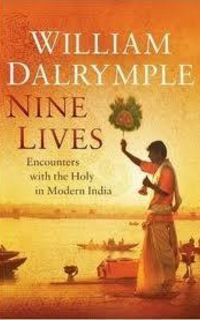
- Curated in Best Books About India
In 1991, Monisha Rajesh’s family moved from Sheffield to Madras hoping to make India their home. Two years later, fed up with soap-eating rats, severed human heads and the creepy colonel across the street, they returned to England with a bitter taste in their mouths. Two decades later, she turns to a map of the Indian Railway and takes a page from Jules Verne’s classic tale. She embarks on an adventurous journey through India on 80 trains, covering 40,000 km, the circumference of the earth. She hopes that 80 train journeys across India will lift the veil on a land that has become alien to her.
Along the way, Monisha discovers that India’s railways, with luxury trains, toy trains, Mumbai’s infamous commuter trains, and even a hospital on wheels, have many stories to tell, not to mention a colorful cast of characters.
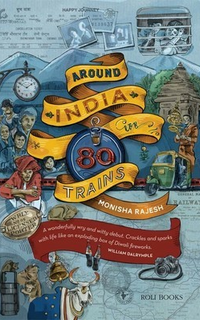
- Curated in Best Books About India
India is one of the most difficult and rewarding destinations to visit. Some have said that India means “I will never do it again”. Many others return there again and again because India is the best show in the world, the best bazaar of human experience that you can visit in your life. India dissolves notions of what it means to be alive, and its people give new meaning to compassion, perseverance, ingenuity and friendship.
India, monsoon and marigold, dung and dust, colors and corpses, smoke and ash, snow and countless myths, is a cruel and unforgiving place of indescribable sweetness. Just like life itself. Travel with David Yeadon to the Kumbh Mela in Allahabad, the world’s largest party, and take “A Bath for Fifteen Million People”; Say hello to the monsoon with Alexancer Frater, where the Indian and Pacific oceans meet.
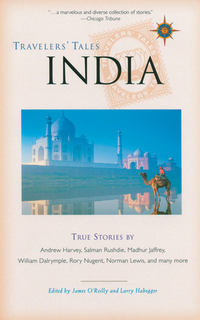
- Curated in Best Books About India
India’s westernized elite, cut off from local traditions, “want to write a dot in a land where there are no dots.” From this startling insight, Mark Tully has woven a superb series of “stories” exploring Calcutta, from the Kumbh Mela in Allahabad (probably the world’s largest religious festival) to the televised broadcast of a Hindu epic.
In the process, he combines analysis of important themes with a sense of the subtle texture and human realities of Indian life. The result is a revelation.
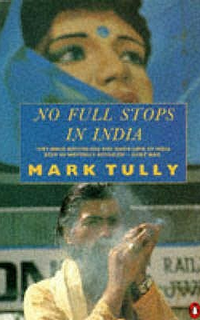
- Curated in Best Books About India
This is a remarkable portrait of Indian politics, culture and spirituality. Palaces of maharajas, ashrams, temples and caves, remote villages reached by tortuous journeys in rickety buses, find great expression in this book.
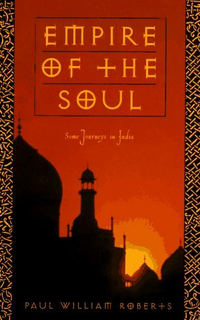
- Curated in Best Books About India
Naipaul tackles this shifting and changing land from a variety of perspectives where Indians tell their life stories, offering a kaleidoscopic, journey through metropolitan cities.
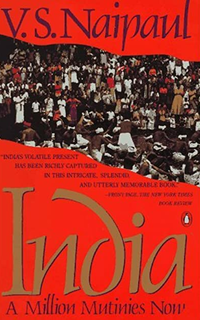
- Curated in Best Books About India
Set in 19th century India between two revolutionary upheavals, Twilight in Delhi brings history to life and portrays the loss of an entire culture and way of life in a very moving way. As Bonamy Dobree said, “It launches us into a different, perfect world. Mr. Ahmed Ali makes us hear and smell Delhi… the flapping of the wings of the pigeons, the cries of the traveling merchants, the calls to prayer, the howling of the mourners, the singing of qawwals, the smell of jasmine and sewage, roasted ghee and burnt wood. .
The details are, as EM Forster put it, “new and fascinating,” poetic and brutal, charming and ruthless. First published by Hogarth Press in 1940, Twilight in Delhi was critically acclaimed and hailed as a major literary event in India.
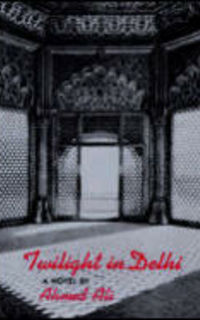
- Curated in Best Books About India
Suketu Mehta, a native of Mumbai, gives us a glimpse of this impressive metropolis. Approaching the city from unexpected angles, it takes us into the criminal underworld of rival Muslim and Hindu gangs, follows the life of a bar dancer who grew up in poverty and abuse, opens the door to the inner sanctum of Bollywood and delve into the stories of the countless villagers who live on the sidewalks in search of a better life.

- Curated in Best Books About India
Personal account of the life of the man who freed India from colonization through the Satyagraha movement: nonviolent protest. His early childhood, his legal studies, his purification, and ultimately the salvation of his homeland are carefully traced in this inspiring and critical work of unsurpassed significance. For me, along with Carl Jung’s Memoirs, Dreams, and Reflections, this is a truly honest and interesting autobiography. The title says it all and says a lot about a man who seems to be cut from a different pattern than you or me. It truly is a fascinating read as you get a glimpse of the man behind the myth.

